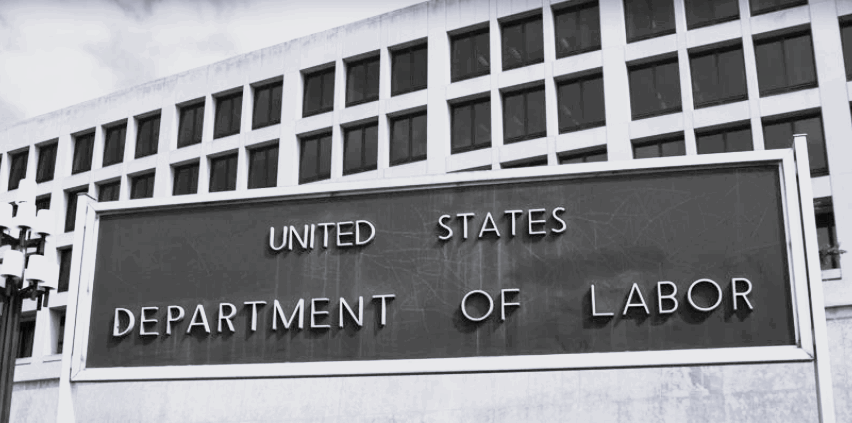Former EEOC and Department of Labor Officials Provide a Clear Road Map to Lawful and Effective Diversity, Equity and Inclusion
We recently shared the two open letters below urging employers to maintain their diversity, equity, inclusion, and accessibility policies in the face of threats by the Trump administration seeking to chill this legal and effective work to support equal opportunity. One letter by former EEOC Officials, including Working IDEAL Collaborating Partner Jenny R. Yang, and one by former Department of Labor Officials, including Jenny and Working IDEAL CEO and co-founder Pam Coukos, set the record straight on why and how DEI programs are lawful and important tools to ensure fair and inclusive workplaces.
“Diversity, equity, inclusion and accessibility programs are essential tools to support business goals, promote merit and opportunity, and grow our economy. Unfortunately, the Trump Administration is waging a misguided war on these core American values, based on misinformation, threats and intimidation. We urge federal contractors and all employers to continue your valuable work to apply data and analyze practices so that the doors of opportunity remain open to all.”
— Pamela Coukos, CEO, Working IDEAL
Statement of Former Equal Employment Opportunity Commission (EEOC) Officials on Employer Diversity, Equity, and Inclusion Efforts
On March 19, EEOC Acting Chair Andrea Lucas issued a document that appears designed to convey that employer initiatives to advance diversity, equity, and inclusion are fraught with legal peril. This is simply not true: there are well-established legal principles that not only enable but require employers to take proactive steps to identify and address barriers that have limited applicants’ and employees’ opportunities due to protected characteristics.
On April 3, 10 former officials of EEOC issued an open letter to the legal community responding to this misinformation and urging employers to follow the law.
Key takeaways:
- Lawful DEI efforts support business goals
Employers can legally implement DEI initiatives, which are backed by research showing improved productivity and innovation, and are not inherently discriminatory. - Training and ERGs promote inclusion
Anti-discrimination training and Employee Resource Groups (ERGs) are valuable tools for fostering inclusive workplaces, though they must be inclusive and carefully designed to avoid legal concerns. - Expanding recruitment increases diversity
Broadening recruitment efforts and reassessing job qualifications help attract a more diverse and qualified applicant pool by removing unnecessary barriers. - Workforce data aids in barrier analysis
Voluntary, confidential demographic data collection enables employers to identify and address obstacles to equal opportunity and reduce legal risks. - Ongoing support for DEI is essential
Proactive DEI measures and support from civil rights offices are crucial to advancing workplace equality and ensuring compliance with anti-discrimination laws.
We invite you to read and share: Statement of Former Equal Employment Opportunity Commission (EEOC) Officials on Employer Diversity, Equity, and Inclusion Efforts
Signatories:
Charlotte A. Burrows (Commissioner, 2015-2025; Chair, 2021-2025)
Chai R. Feldblum (Commissioner, 2010-2019)
Karla Gilbride (General Counsel, 2023-2025)
Christine Griffin (Commissioner, 2006-2009; Vice Chair, 2009)
Stuart J. Ishimaru (Commissioner, 2003-2012; Acting Chair, 2009-2010)
P. David Lopez (General Counsel, 2010-2016)
Peggy R. Mastroianni (Legal Counsel, 2011-2017)
Jocelyn Samuels (Commissioner, 2020-2025; Vice Chair 2021-2025)
Ellen Vargyas (Legal Counsel, 1994-2000)
Jenny R. Yang (Commissioner, 2013-2018; Vice Chair, 2014; Chair 2014-2017)
Open Letter to the Federal Contractor Community from Former U.S. Department of Labor Officials
America’s enduring promise is that talent and effort – not background or origin – should determine one’s path. We urge you to stand firm in your commitments to lawful diversity, equity, inclusion, and accessibility practices that promote civil rights compliance, true merit, and a strong economy.
On April 15, former officials of the OFCCP issued an open letter to the federal contractor community urging employers to maintain diversity policies.
Key takeaways:
- Revocation of EO 11246 Eliminates an Effective and Proactive Government Tool to Promote Equal Opportunity
The Trump Administration’s Executive Order 14173 revoked EO 11246, undermining long-standing anti-discrimination protections for federal contractors and creating confusion. - Legal and constitutional issues raised
The revocation raises serious legal concerns, including potential violations of due process and First Amendment rights, and oversteps presidential authority, which cannot overrule standards set by Congress. - Recommendations for contractors
Contractors are urged to continue self-assessments, maintain DEI initiatives, and comply with anti-discrimination laws to promote fairness and manage legal risks. - Importance of workforce data and benchmarks
Collecting demographic and employment data, analyzing workforce trends, and using benchmarks (not quotas) are critical for ensuring equal opportunity and identifying discriminatory practices. - OFCCP’s proven impact and current concerns
The OFCCP has historically played a vital role in promoting workplace equality, but recent administrative actions and staffing losses threaten its ability to support civil rights enforcement.
We invite you to read and share: Open Letter to the Federal Contractor Community from Former U.S. Department of Labor Officials
Signatories:
Pamela Coukos (OFCCP Senior Advisor, 2011-2016)
Donna Lenhoff (OFCCP Senior Civil Rights Advisor, 2011-2017)
Seema Nanda (Solicitor of Labor, 2021-2025)
Patrick O. Patterson (OFCCP Deputy Director, 2014-2017)
Maya Raghu (OFCCP Deputy Director, Policy, 2021-2023)
Dariely Rodriguez (OFCCP Chief of Staff, 2021-2022)
Patricia A. Shiu (OFCCP Director, 2009-2016)
M. Patricia Smith (Solicitor of Labor, 2010-2017)
Shirley J. Wilcher (Deputy Assistant Secretary for OFCCP, 1994-2001)
Jenny R. Yang (OFCCP Director, 2021-2023)



